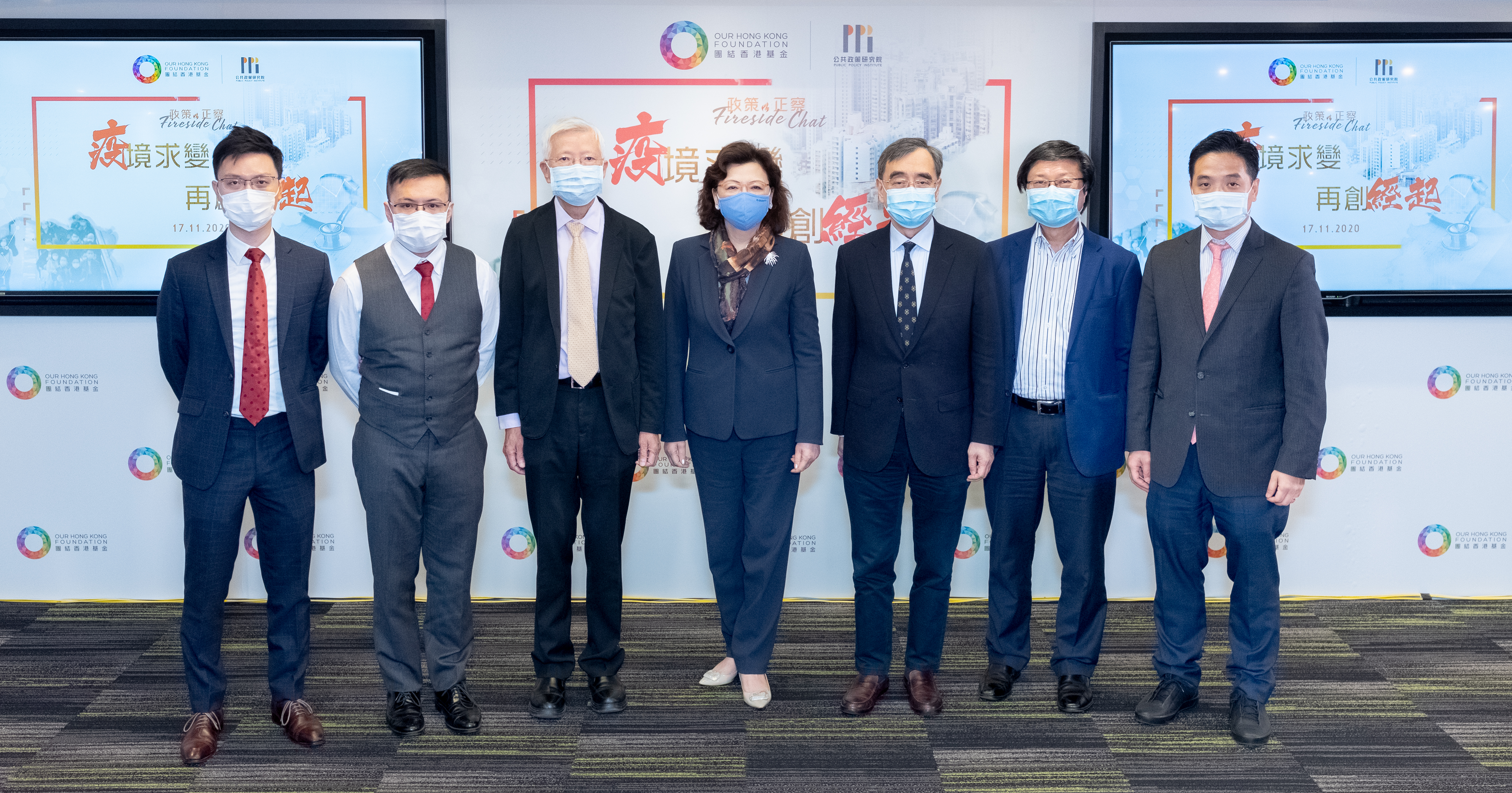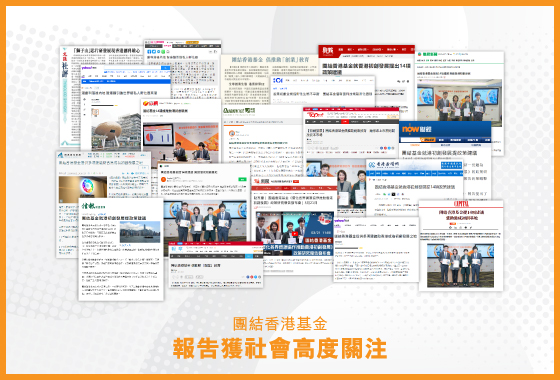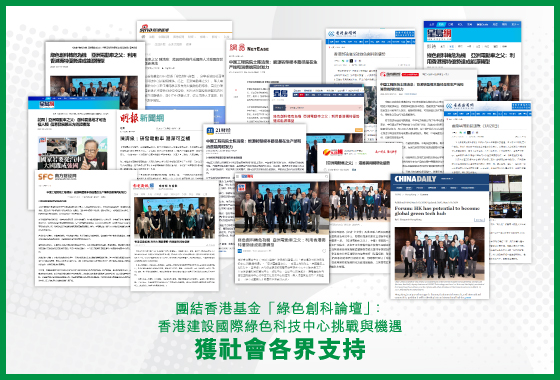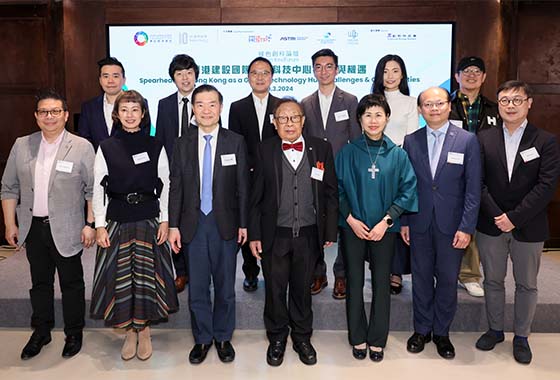Rising Out of the Pandemic’s Economic Fallout
The Covid-19 pandemic has caused widespread economic recession around the world and a high unemployment rate in Hong Kong. The road towards economic recovery is beset with many obstacles. It is the collective wish of Hong Kong people to effectively control the virus, reboot the economy, and bring back a sense of normality to life. Seeking ways to overcome the pandemic’s economic fallout, Our Hong Kong Foundation (OHKF) organised its first ‘Public Policy Fireside Chat’ webinar, and invited a panel of experts to discuss the prospects of economic rebound through stimulating internal consumption and encouraging corporate investment.
Unemployment Rate in Hong Kong Climbs up to 6.4% amid the Pandemic
The world has suffered from economic recession with the Covid-19 pandemic sweeping across the globe, and Hong Kong is of no exception. According to government statistics, Hong Kong’s real GDP for the first three quarters of 2020 contracted by 7.2% year-on-year. Unemployment rate in Hong Kong rose to 6.4% from July to September, reaching the highest level in the past 16 years. As the overall economy continues to perform weakly and the pandemic remains capricious around the world, the labour market is expected to be under immense pressure in the short term. The HKSAR Government already launched a relief plan of unprecedented scale—a cash handout of HK$10,000 per person along with a series of employment subsidies and relief measures. These actions immediately injected impetus to the economy while cushioning employment in society.
Government Fiscal Reserves Decreased to Post-SARS Level
The three rounds of subsidy through the Anti-epidemic Fund and other relief measures have cost the Government HK$300 billion, equivalent to 11% of GDP. It is projected that the fiscal deficit in 2020/21 will rise to more than HK$300 billion, while the fiscal reserves will decrease to around HK$800 billion, which is amounted to only 12-13 months of fiscal expenditure and close to the levels after the SARS epidemic in 2003.
Professor Lawrence Lau, the Ralph and Claire Landau Professor of Economics at the Lau Chor Tak Institute of Global Economics and Finance at the Chinese University of Hong Kong, once remarked at an OHKF forum that the Government should make up for the lack of overall social demand and directly stimulate the economy and employment through public investment. While ‘Lantau Tomorrow’ project may be an effective countercyclical measure in attracting corporate investments in Hong Kong, it will take time to prepare and implement. However, Professor Lau believed that once the Government announced the relevant plans, the private sector would be incentivised to carry out preparations well before any tender or contract for public project is awarded. In today’s webinar, the panel experts highlighted the re‑launching the Tenants Purchase Scheme (‘TPS 2.0’) as another feasible solution.
Re-launching the Tenants Purchase Scheme to Effectively Revitalise Local Economy
To alleviate Hong Kong’s problems in a short period of time, Professor Richard Wong, the Philip Wong Kennedy Wong Professor in Political Economy at The University of Hong Kong, referred to Singapore’s ‘HDB’ model and recommended the re-launch of an optimised version of the ‘Tenants Purchase Scheme’. Under TPS 2.0, existing public housing units may be sold at considerably low prices to their tenants, so that tenants may take full ownership of their units. ‘The re-launch of the “Tenancy Purchase Scheme” is expected to bring HK$4 trillion to the government coffers. This will help revitalise Hong Kong’s economy,’ said Professor Wong.
Professor Wong also pointed out that TPS 2.0 will bring multi-level benefits to the Government to help cope with budget deficit in the coming year. It will also bring extra revenue through stamp duty and registration fees. The scheme not only helps public housing tenants, but the proceeds gained from the sale of public housing units may also be invested back into society to benefit the whole population. Furthermore, an increase in the number of home owners will heighten demand for a series of economic activities such as legal, financial, and renovation services. All of these will bring new opportunities to different industries and help reverse the impact of economic downturn.
Mr Stephen Wong, Deputy Executive Director and Head of Public Policy of the OHKF, agreed that the Government should fully re-launch the TPS. ‘TPS 2.0 will be a win-win solution for multiple parties and a great benefit to the entire society, for it assists the grass-roots community in becoming property owners, narrows the gap between the rich and the poor, and adds values to society as a whole. Over the past 20 years, it has been proven that TPS can bring about a very positive and visible impact on the labour market and household stability.’
‘TPS 2.0 will allow Hong Kong to utilise more effectively its public housing resources,’ said Mr Ryan Ip, Head of Land and Housing Research of the OHKF. ‘Hong Kong’s transportation infrastructure has already reached its capacity, the sale of public housing could generate proceeds to invest in transportation infrastructures that bring long-term benefit. The Government’s implementation of land development, house construction and transportation infrastructure programmes can effectively boost the economy, create jobs, and help alleviate the saturation in the road and railway systems.’
Among the experts attending the webinar were Professor Yun-wing SUNG, Associate Director of the Shanghai-Hong Kong Development Institute at the Chinese University of Hong Kong; Mr Franklin Lam, Founder of HKGolden50; and Mr William Tsang, policy analyst. Together, they contributed valuable insights and opinions on revitalising Hong Kong’s economy.
‘Rising Out of the Pandemic’s Economic Fallout’:
Full live webinar: https://youtu.be/m-MSClX2IoI?t=382





